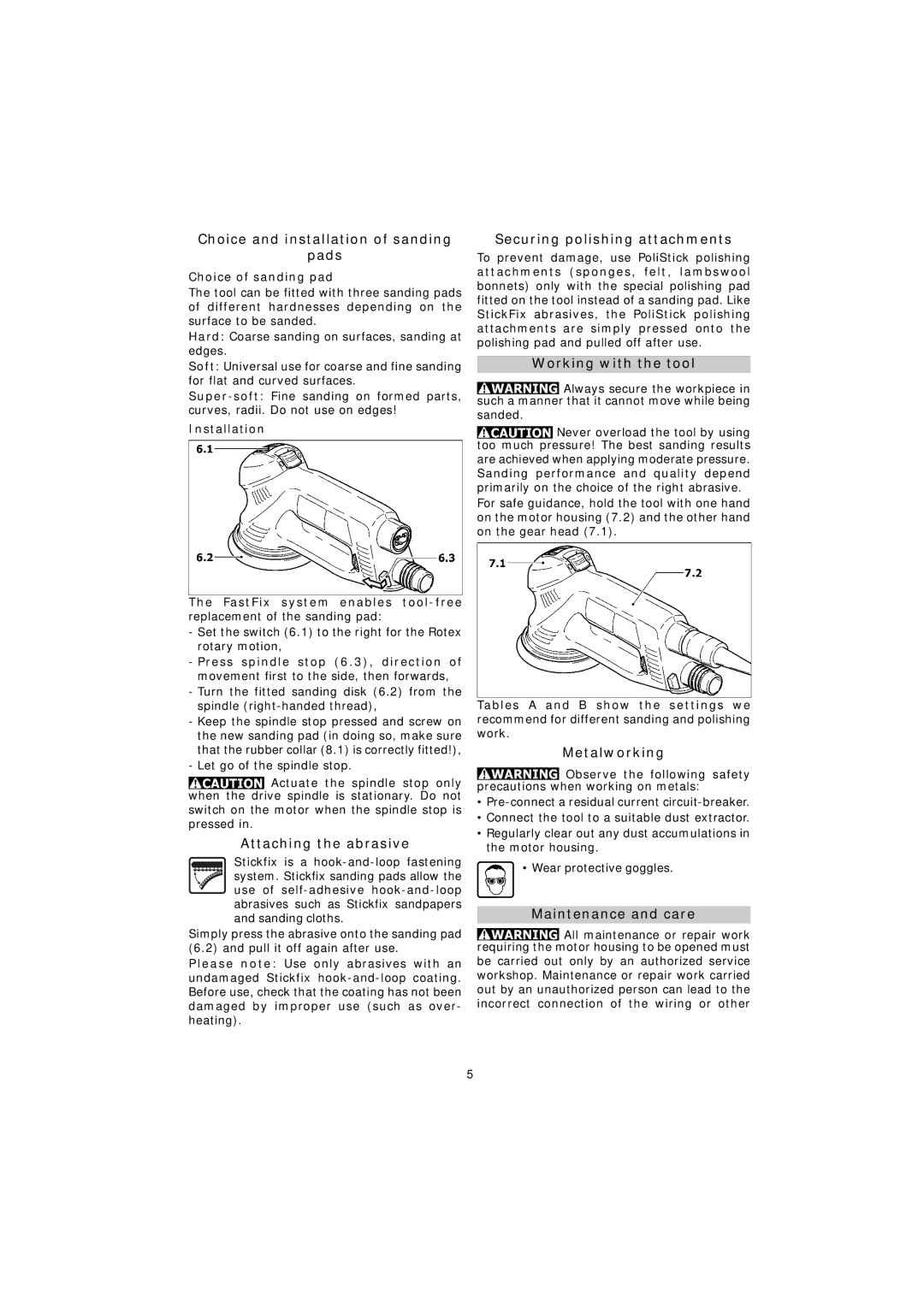
Choice and installation of sanding
pads
Choice of sanding pad
The tool can be fitted with three sanding pads of different hardnesses depending on the surface to be sanded.
Hard: Coarse sanding on surfaces, sanding at edges.
Soft: Universal use for coarse and fine sanding for flat and curved surfaces.
Installation
The FastFix system enables
-Set the switch (6.1) to the right for the Rotex rotary motion,
-Press spindle stop (6.3), direction of movement first to the side, then forwards,
-Turn the fitted sanding disk (6.2) from the spindle
-Keep the spindle stop pressed and screw on the new sanding pad (in doing so, make sure that the rubber collar (8.1) is correctly fitted!),
-Let go of the spindle stop.
![]() Actuate the spindle stop only when the drive spindle is stationary. Do not switch on the motor when the spindle stop is pressed in.
Actuate the spindle stop only when the drive spindle is stationary. Do not switch on the motor when the spindle stop is pressed in.
Attaching the abrasive
Stickfix is a hook-and-loop fastening
system. Stickfix sanding pads allow the
use of
Simply press the abrasive onto the sanding pad (6.2) and pull it off again after use.
Please note: Use only abrasives with an undamaged Stickfix
Securing polishing attachments
To prevent damage, use PoliStick polishing attachments (sponges, felt, lambswool bonnets) only with the special polishing pad fitted on the tool instead of a sanding pad. Like StickFix abrasives, the PoliStick polishing attachments are simply pressed onto the polishing pad and pulled off after use.
Working with the tool
![]() Always secure the workpiece in such a manner that it cannot move while being sanded.
Always secure the workpiece in such a manner that it cannot move while being sanded.
![]() Never overload the tool by using too much pressure! The best sanding results are achieved when applying moderate pressure. Sanding performance and quality depend primarily on the choice of the right abrasive.
Never overload the tool by using too much pressure! The best sanding results are achieved when applying moderate pressure. Sanding performance and quality depend primarily on the choice of the right abrasive.
For safe guidance, hold the tool with one hand on the motor housing (7.2) and the other hand on the gear head (7.1).
Tables A and B show the settings we recommend for different sanding and polishing work.
Metalworking
![]() Observe the following safety precautions when working on metals:
Observe the following safety precautions when working on metals:
•
•Connect the tool to a suitable dust extractor.
•Regularly clear out any dust accumulations in the motor housing.
• Wear protective goggles.
Maintenance and care
All maintenance or repair work requiring the motor housing to be opened must be carried out only by an authorized service workshop. Maintenance or repair work carried out by an unauthorized person can lead to the incorrect connection of the wiring or other
5
